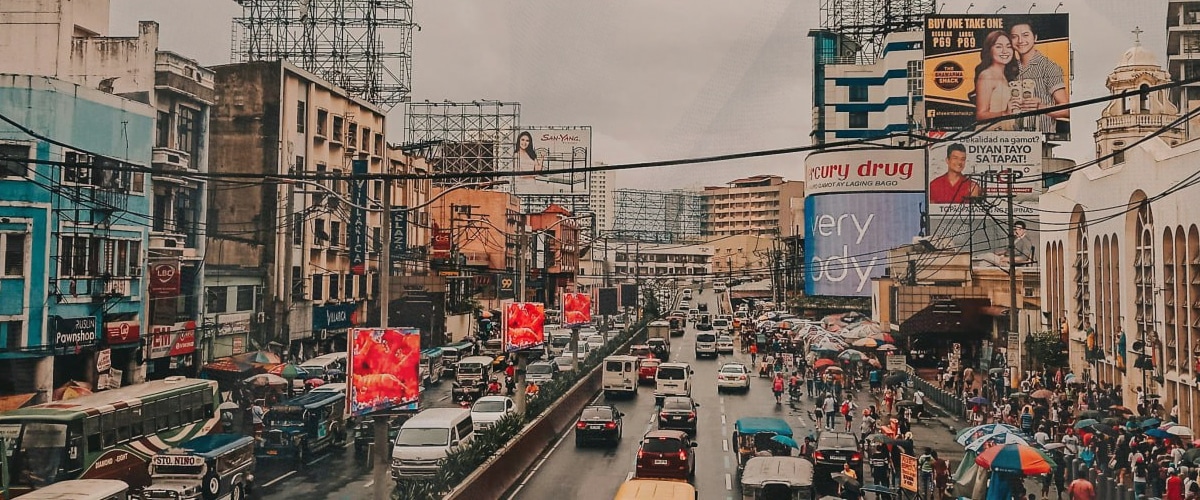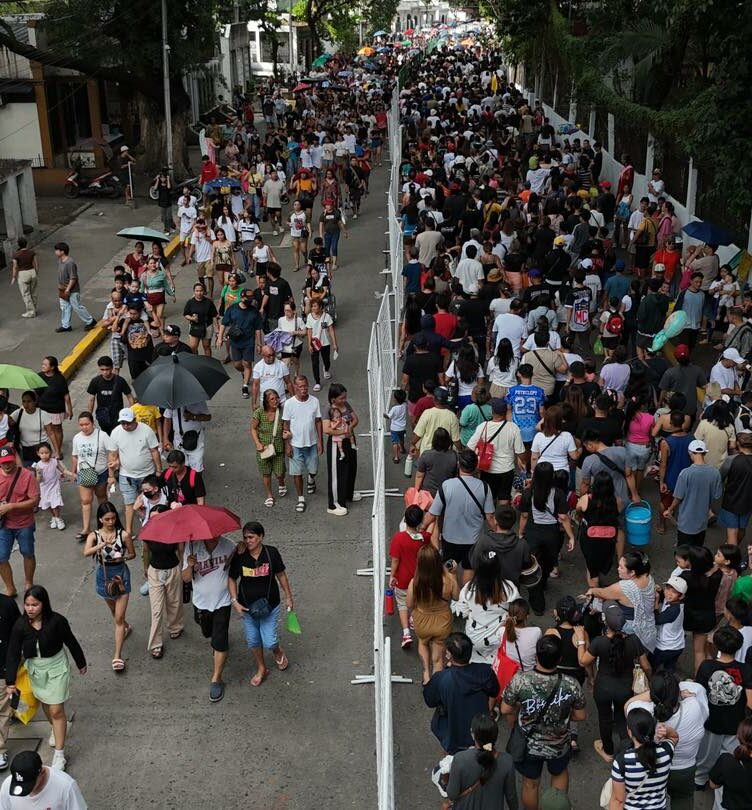MIGRATING to a new place or a country can be difficult and overwhelming. Adjusting will take time, depending on people’s abilities to adapt to a different and challenging life. The physical and emotional turmoil feels heavier than the bags and suitcases you have travelled with.
In the same manner, the introduction of new customs, language or the visible differences in the use of tone in speech, food, the smell, places to visit, social norms may feel significantly unfamiliar, even slangs matter. Though it doesn’t sound strange enough, the streets also whisper apparent evidence of your continuous loss.
Several moments of trying to understand and fit into a strange rhythm can be a bit confusing.
Certain episodes of regret, rush of what-ifs, culture shock, and anxiety will hold you back from exploring new things. There’s this haunting fear inside your head preventing you from making an attempt at things. What if they find you weird? Or they look at you in the way that looks like there’s a hundred questions playing inside their heads about you? What would happen if you embarrassed yourself in front of many people just because you aren’t familiar with the customs?
One might contemplate going back home, where things seem to fall into place like a stagnant water that doesn’t need to be familiarized anymore. Because you know how the waves are, and you’ve felt them as you grow up.
But of course, the coin always shows two sides. If you can feel the inescapable company of struggles every time and everywhere, there is also the fated feeling of excitement. Encouraging you to be deliberately thrilled as you pursue another level of endeavor on your own, to finally see and touch what’s beyond the walls of your confinement before. Simply amazed to acquire knowledge from the inevitable changes in facing unalike cultures. Along with the undeniable sudden hit of courage, to boldly face tests of resilience, and the motivation to become more socially aware.
The city sounds familiar until it isn’t
When I was young, I often heard different stories about Manila. On why people usually come there for various purposes despite the distance from their native homes—oftentimes to look for a job, sometimes to spend vacation with families during holiday seasons and special occasions, for education, business, or for permanent residency.
“Iba sa Maynila, anak. Hindi kagaya dito sa atin.” The mountains of comparison kept on boarding in my mind. Why is it different?
Coming from the perspective of a born and raised in the tranquility and care of nature, fresh air with limited concrete roads and buildings back then—or the province, I was somewhat bewildered and eager to see it firsthand. How different could it be? Why does Manila sound luxurious from afar? Does it really look like a very interesting place in the Philippine map?
At 10, I thought Manila is where people meet the so-called success.
One time, upon having the liberty to zone out while in my Araling Panlipunan class, the thought of the city once slipped again. There, in my young mind’s visualization, I see Manila as somewhat like the equator; the circle of latitude where it divides people, places, traditions, and culture, but eventually unites them along with their varying reasons.
For me, the city defines a lavish lifestyle. Children having the privilege to play on a bigger playground, unlike on ours in the province. Parents with their huge businesses and houses, flashy cars, schools and other establishments with quality and modern equipment and machines, unlike ours. That being the case, I wished to step foot there one day. It was a long fascination that eventually transmogrified to a beautiful young dream of mine.
In a nutshell, there was this image painted inside my head that everyone out there resides in a quite comfortable life. Little did I know, I was wrong. Only having my misconceptions. I painted it with idealistic pictures and designed it with almost perfect adjectives until it boils down to the vision of a fun life.
Fast forward to the present, years have passed and I am no longer in the shelter of the paradise I used to call home.
My old beliefs have shattered, like a glass meant to knock some senses out of me. Because it is completely different. Cars tirelessly roar from dusk till dawn, reaching a high belt with their raging engines—always in a race.
People breathe and exhale similar polluted air.
Living here taught me that there is no other reason to romanticize life, unless you have survived.
Underprivileged people sleeping everywhere, mainly in streets and under bridges. In the back of my mind, I knew it for the longest time that all of these actually exist. And yet, now that they are in front of me and I can see them closely, my metaphors have lost their way. They are real, and they do really happen.
While there are numerous enormous buildings, and blinding colorful city lights everywhere. Life moves at the speed of traffic lights. Every second, minutes that turn to hours matters. You do not own your time to waste to sit and do nothing, instead is the time that holds you like a puppet on a show.
Yes, the city may showcase its elegance and luxury, but it will never change the fact that there is no easy life once you step and see its difficult state.
To experience Manila was a goal back then—until now, even. However, now that I am here, it is no longer a mere part of my dreams. Manila doesn’t spell what I used to think of it; by contrast, it is written as r-e-a-l-i-t-y.
Children don’t play in the park but find their way to run along the busy streets, asking for food and money to sustain the day. Neglecting their youth and innocence all at once. When riding any public transportation, putting your belongings on safety seems like the priority.
Dealing with Culture Shock
According to Troy Segal of Investopedia, the emotional upheaval, confusion, or anxiety someone may experience while moving to a foreign country or coming into contact with a new culture or environment is known as culture shock or cross-cultural adjustment. Adapting to a different cultural background is a common response to a new setting.
Now I understand why they say it is different. It is not just about the huge gap in terms of the existence of modernization and constant development, but the manner of living life. However, all people occupy time and spaces with hustles and dreams to fulfill.
I have learned how culture shock can shape our personalities, to adapt, and connect to a whole new different culture. To appreciate and limit our knowledge to new ones and broaden our horizons.
Dealing with it means seeing culture shock as not just about the struggles it will deliberately bring to our lives, but also about the opportunities to grow individually and explore life in every aspect. What seems like a struggle at first can be a powerful tool for our continuous journey of discovering ourselves.
Hence, instead of resisting changes, those experiencing culture shock should see it as a learning opportunity and experience. Truly, a new set of people in a new environment can be overwhelming.
Culture shock is not just a temporary phase. It is a journey to enjoy life in a new and vast world. Spend and cherish moments of being indifferent. It might be fearsome, but it will allow us to navigate our life better, to take a pause and listen to our strengths and weaknesses that will lead to the path where we can better our characters and skills.
Sometimes we also need to step outside our comfort zones. March out to meaningful journeys waiting ahead of us. Prove that the unknown road will often lead us to self-discovery. So, the next time you find yourself in a different place or a country, you would know you are there for the experiences. Recognize the chance to grow.
The uncomfortability will later on subside, the ice will break on its own. Thus, why not see the differences we possess as individuals on a positive lens? All along, it is not “ganito pala sa Maynila,” but rather, “ganito pala talaga sa Maynila.”
With reports from Ivory Jade Q. Guizon
How useful was this post?
Click on a star to rate it!
Average rating 5 / 5. Vote count: 1
No votes so far! Be the first to rate this post.
We are sorry that this post was not useful for you!
Let us improve this post!
Tell us how we can improve this post?






